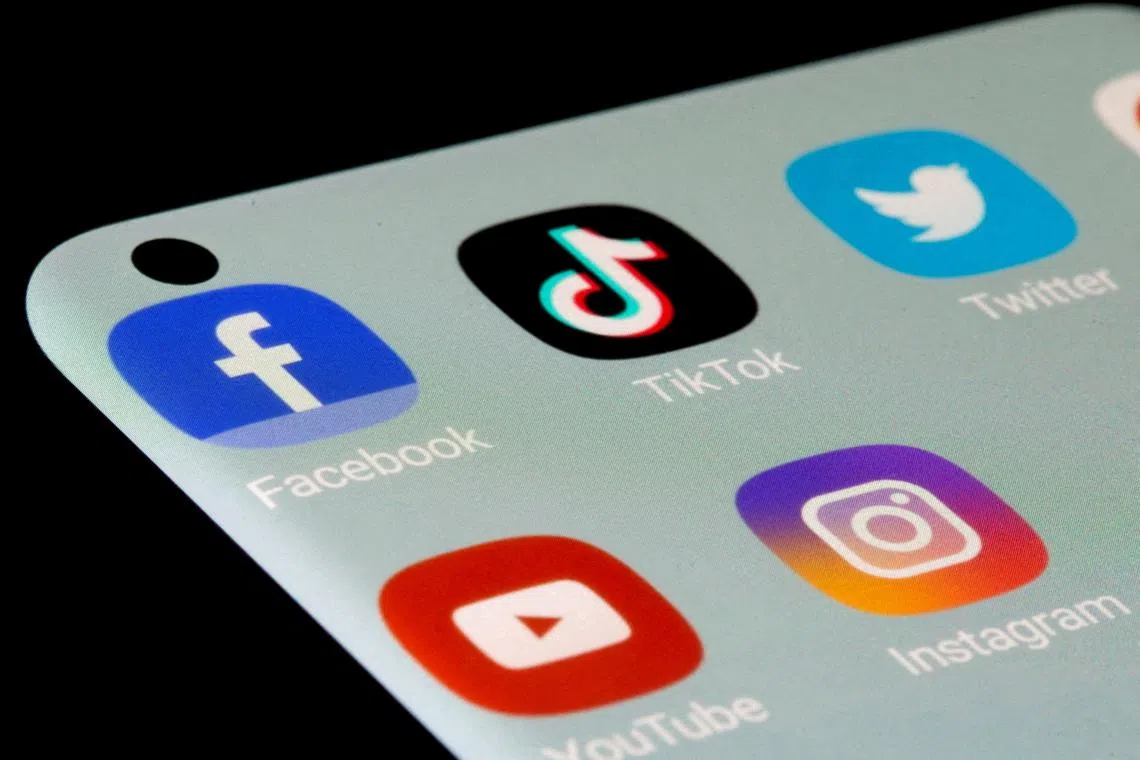askST Jobs: What to do when you receive a follow request from colleagues on social media
Sign up now: Get ST's newsletters delivered to your inbox

You are not obligated to give your co-workers access to your personal social media presence.
PHOTO: REUTERS
Follow topic:
In this series, manpower reporter Tay Hong Yi offers practical answers to candid questions on navigating workplace challenges and getting ahead in your career. Get more tips by signing up to The Straits Times’ HeadSTart newsletter
Q: My colleagues requested to follow me on my personal social media accounts. Should I let them?
A: You are not obligated to give your co-workers access to your personal social media content, unless you are certain they are already your friends.
If you do choose to let your colleagues follow you, Mr David Blasco, general manager at recruitment firm Randstad Singapore, says that you should avoid posting frequently during business hours.
“Posting regularly on social media during business hours can send the wrong message to your colleagues or bosses who follow you. “While it is acceptable to post content on your social media during business hours, obsessive sharing may lead to questions about your credibility and productivity at work,” he says.
Posting less frequently shows your professionalism, as well as respect for your colleagues’ time, he adds.
Employees should also avoid posting strong political opinions, as these can prove to be sensitive and divisive.
“Expressing strong opinions could create disagreements and conflict in workplace relationships. It may also bring risks to your company’s reputation if your political views are not aligned with what it stands for,” he says.
Mr Blasco adds that employees should avoid posting inappropriate humour or memes that may offend colleagues.
“It may sometimes also be against company policies if it crosses a line, especially when companies are investing in improving their workforce diversity and inclusivity.”
Mr Paul Heng, managing director of NeXT Career Consulting Group, says that he has seen employees post about company meetings with photos of the attendees.
“Much as there is no reason why faces of colleagues can be top secret stuff, it is still business. Some of these colleagues might not appreciate being on social media without their prior knowledge or approval.”
He also cautions against the risk of posting sensitive business information by accident should work and personal lives be blurred, a sentiment echoed by Mr Blasco.
“In general, companies in Singapore do not impose policies against colleagues interacting with each other on personal social media accounts,” notes Mr Blasco.
“However, some companies may have rules about the type of content you share on your personal accounts, especially when it comes to proprietary information such as customer and client information or company data.”
Meanwhile, for those who are uncomfortable about their colleagues following them on their personal social media accounts, Mr Heng says that there is nothing wrong with politely declining these requests.
“If push comes to shove, such as a superior making such a request, remove yourself from the social platform,” he adds.
Mr Blasco says: “If your account is set to private, and you would let a select group of people view your content, you can politely explain to your colleagues that you would rather keep your professional and personal lives separate.”
After acknowledging and politely turning down the request on the grounds of maintaining a boundary between your personal and professional lives, provide reassurance to your co-workers, Mr Blasco advises.
“Reassure your colleagues that your choice is not indicative of a lack of trust and interest towards your colleague, and it is just your personal preference,” he says.
Regardless of your ultimate decision, make sure that you abide by consistent principles.
Choosing to follow some colleagues but not others on social media may lead to perceptions of favouritism or bias, which will affect workplace dynamics unless you can justify the difference, Mr Blasco says.
But he adds: “You should remain mindful that your content is not as private as it seems.
“When you post negative content about your colleagues on your private account, there will still be a possibility that someone will share your content with them.”
Have a question? Send it to askst@sph.com.sg

